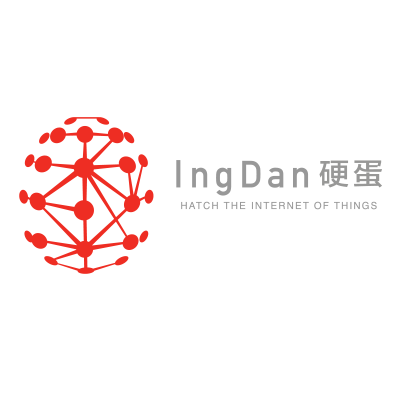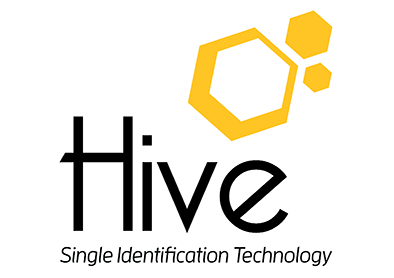Published
- 07:00 am

Oromia International Bank (OIB) will be implementing ICSFS’ universal Islamic flagship, ICS BANKS ISLAMIC in its head quarter and its 200+ branches; this mile stone project will provide Oromia International Bank with world-class fully integrated banking solutions which are designed and developed following the principles of Shari’a of which; ICS BANKS ISLAMIC Core Banking, Murabaha, Musharaka, Ijara, Istisna’a Tawaruq, Mudaraba, Salam, Qard Hasan, Salam Islamic, Deposit, Profit Distribution, Investment and Treasury, Trade Finance, Credit Facilities & Risk Groups, Remittances, Internet Banking, DMS, MIS, SMS, Mobile banking.
The signing ceremony took place in Ethiopia, attending the ceremony were the President of the bank; Mr. Abie Sano and the Executive Director of Business Development at ICSFS; Mr. Wael Malkawi.
Following the signing ceremony, The President of the bank; Mr. Abie Sano commented:
“At OIB we are committed to providing full-fledged Interest Free Banking (IFB) and best quality banking services, we have selected ICSFS for its cutting-edge solution, and outstanding products, ICSFS wide experience in the African financial market will assist us fulfil our constant desires to deliver superior services to our esteemed customers, and we will be able to improve our operational efficiency.”
On this occasion, the Executive Director of Business Development at ICSFS; Mr. Wael Malkawi commented:
“We are looking forward for this partnership, where Oromia International Bank will mark our first reference in Ethiopia and will join our expanding leading journey in the African continent, as our vision is reflected with new unleashed Opportunities and new defeated challenges.” Malkawi added “we are looking forward for a long-lasting partnership, where Oromia International Bank will definitely enjoy ICS BANKS ISLAMIC unlimited offerings and advantages.”
Related News
- 01:00 am

Cogobuy Group ("Cogobuy" or the "Company", stock code: 400.HK; with its subsidiaries (the ''Group'')), the largest e-commerce platform serving the electronics manufacturing industry in China, is pleased to announce IngDan Labs, its research unit, has launched an open Artificial Intelligence ("AI") platform – the IngDan Labs' Kepler System ("K-System"). The K-System is currently powered by the latest Microsoft's AI services and Allwinner's AI chipset, and will integrate more AI services from other providers and work with more other AI chips manufacturers in the near future. With "openness" as a key feature and its "enabling" function, the goal of the new platform is to address the key pain points of AI applications, and provide traditional enterprises and AI startups with an end-to-end easily-customizable AI turn-key solution. With K-System, IngDan Labs hopes to solve the current AI application bottleneck problems, enable the wide and rapid applications of AI technology, and unleash the power AI to vertical applications, which could potentially result in new business demand for Cogobuy in terms of AI services and AI chips distributions, and AI technology and innovation services.
IngDan Labs developed the completely open and disruptive K-System to address these issues. It provides an open turn-key AI solutions from hardware and software, to cloud and data services, facilitates easy customization for AI products and services in design and manufacturing, and accelerates the application development for enterprises adapting AI technologies. The K-System eliminates limitations of traditional closed cloud service bounded platforms, provides a unified API that can be connected to different cloud services, lowers the barriers of "isolated digital islands", and enables data sharing and trading under the permission of users by introducing the new "data bank" concept and solution.
The platform was created through a cooperation between IngDan Labs, Microsoft, and Allwinner. Dr. Ming Zhou, Assistant Managing Director of Microsoft Research Asia, commented, "Through IngDan Labs' K-System, we are able to offer Microsoft's technologies and services to more developers, and obtain valuable feedbacks from those developers on the products they launch."
Chief Technology Officer of Cogobuy and IngDan, Dr. Shipeng Li, said: "AI is found playing a more and more important role in our daily lives, including applications across our home appliance, vehicles, healthcare and other areas. It is inevitable that more and more applications will be powered by AI. At IngDan Labs, as a pioneer in the AI industry with a world-class R&D team, we have in-depth expertise in AI area, understand well companies' needs when deploying AI technologies, and provide value-added innovative technical solutions to large corporations, entrepreneurs, innovators and startups. We are actively working to accelerate AI applications in traditional industries, helping them to evolve faster.
Related News
- 05:00 am

CreditEase Wealth Management was named "Best Wealth Management Firm of the Year" in the inaugural China Independent Wealth Management category, by Asiamoney. This award is the second global recognition within half a year for CreditEase Wealth Management, after receiving the Asian Banker's award for "Best Non-Bank Private Wealth Product" in December 2016.
CreditEase Wealth Management was awarded for its assets under management (AUM), wealth management product performance, and the firm's application of modern technologies to better service its clients. CreditEase Wealth Management was one of the only two institutions that qualified to receive awards in eight categories under a rigorous evaluation process.
According to Asiamoney, "In 2016, CreditEase set itself further apart from its domestic peers with remarkable success in sustaining robust business growth, outstanding performance of product offerings and leadership in exploring advanced technologies to develop innovative products."
Asiamoney added, "CreditEase launched a robo-advisor platform to help mass affluent clients find the most suitable asset allocation solutions and enable them to track and rebalance their portfolios real time to optimize returns. The firm also rolled out a "smart insurance" platform which employs big data analytic tools that immediately construct and recommend comprehensive insurance plans for clients after they submit information via mobile phones. It was also the wealth management firm to apply blockchain technology in philanthropic financing to allow clients to track the performance of the loans offered to needy people."
"This is Asiamoney's very first evaluation of China's independent wealth management firms," said Ning Tang, CreditEase's founder and CEO. "For CreditEase Wealth Management to win the biggest award from the get-go is a solid testament to Asiamoney's recognition of our overall strength, and a distinct acclaim for our campaign to popularize the concept of asset allocation in China."
Related News
- 01:00 am

Safaricom will over the next three weeks conduct a major upgrade of the M-Pesa platform.
This becomes the third major upgrade since M-PESA’s launch ten years ago, and the first such upgrade since Safaricom migrated the platform to Kenya in 2015.
As a result of the upgrade process, all M-PESA services will be unavailable for a period of two hours on 30th June 2017, from 1.00 A.M. to 3.00 AM. International Money Transfer (IMT), KCB M-PESA, M-Shwari and M-Kesho services will be unavailable on 5th July 2017 for a period of two hours, from 1.00 A.M. to 3.00 AM. In mid-July, Safaricom will conduct the changeover to the new platform, resulting in a 12 hour outage.
A number of M-PESA services will also be sequentially withdrawn in the lead to the changeover. This will be communicated to M-PESA customers and partners through the media and Safaricom social channels.
The new M-PESA platform paves the way for Safaricom to rollout more features and enhancements on the service to the more than 26 million M-PESA customers. Among the new features that customers can look forward to include M-Shwari and KCB M-PESA implementation in the Safaricom App.
“Ten years ago, we began the journey of M-PESA by focusing on our customers’ need to send money home. Since then, we have experienced tremendous growth as the platform has grown to provide even more value to the ecosystem. This upgrade paves the way for the next phase of M-PESA and will enable the service deliver even more value for our customers and partners,” said Bob Collymore, CEO, Safaricom.
Following the upgrade, M-PESA customers are set to benefit from an increase in the number of partners offering their services on the enhanced M-PESA platform. This will be made possible through a new set of Application Programming Interfaces(APIs) that will simplify the process of integration into M-PESA, cutting down the time it takes from weeks to a few days, or even hours.
In addition to providing for new customer features, automation of different M-PESA procedures will eliminate the current requirement for customers and merchants to make such requests to the call centre.
Safaricom and the different M-PESA partners will gradually deploy new features and services over the coming months.
Related News
- 02:00 am

The Hive Project has announced the development of the first cryptocurrency invoice financing platform focused on providing new liquidity pools for small and medium-sized businesses.
The Hive Project aims to disrupt the current invoice finance landscape by providing small businesses with access to finance without the need for centralized intermediaries.
Hive (HVN) uses Ethereum blockchain (distributed ledger) and smart contract technology to assign a unique fingerprint to every invoice issued by tokenizing invoices and publishing them on blockchain. This innovation enables businesses to automate their invoicing process, bringing blockchain technology closer to commercialization.
Ultimately, The Hive Project’s end state will include a full marketplace with advanced trading analytics for peer-to-peer lending. This will rapidly increase the liquidity available to small businesses and create a central database of invoices available for scoring and auditing. In addition to bridging the liquidity gap for small businesses, the technology provided by The Hive Project will help credit checks made on companies and facilitate rapid and real-time auditing.
“We want to help small businesses solve their liquidity issues by leveraging blockchain technology to provide financing options previously only available to large companies,” said Jure Soklic, CEO and co-founder of the Hive Project. “Our platform will dramatically streamline invoice issuance and settlement processes, optimizing small and medium-enterprises’ ability to access liquidity for day-to-day operations and to finance expansion.”
A (HVN) token grants the token holder the right to purchase invoices on the Hive platform and obtain credit scores for companies which have established a financial track record on the Hive blockchain. Invoices are rapidly uploaded to the Ethereum blockchain by invoice sellers looking for liquidity.
“The Hive Project helps small businesses automate invoicing and payments, delivering the benefits of blockchain innovation to commercial entities previously deprived of ready access to finances,” said Richard Titus, Advisor to Hive Project, Former SVP Samsung Electronics Visual Display, and CEO of Prompt.ly. “Hive Project’s end state, a marketplace with advanced trading analytics for peer-to-peer lending, will rapidly increase the liquidity available to small businesses and expand today’s often mercenary ecosystem of factoring and lending.”
The Hive Project aims to secure initial capital of BTC 2,000 through its token (HVN) crowdsale scheduled for six weeks starting Monday, July 3, 2017. The capital will be used for technical infrastructure development and the creation of the Hive Invoice Financing Fund (HVNX), which will be allocated to financing SMEs through the collateralization of invoices.
Related News
- 06:00 am

Warply - one of the top European companies in Mobile Loyalty & Payments - launched the new Warply Keyboard Payments for mobile payments and P2P transactions via messaging apps.
Through Warply Keyboard Payments, banks can be present where their customers are, on all social networks and chatting apps including FB Messenger, iMessage, WhatsApp, Skype, WeChat, Telegram etc. Everyday payments become easier and more efficient with Warply Keyboard Payments, as bank apps are capable of combing the conversational UI convenience and bank security within users' preferred messaging applications.
The keyboard actually acts as an extension of the mobile application. Interaction with Warply Keyboard Payments happens either directly towards the bank or via the mobile banking application, utilizing the bank's existing payment infrastructure. For the connection Warply SDK is required to be embedded in the mobile banking app. Warply Keyboard Payments combined with the infrastructure of the Bank to proven secure transactions, while the payment process is done and controlled completely by the bank.
The benefits for users are also major, since they need only to update their mobile banking app - that has been enabled with Warply Keyboard Payments - and they will be able to make transactions, without having to leave the social app or switch to a different app or webpage. So, while typing within the messaging app, user can switch to the payments keyboard, authenticate himself as bank customer, input amount and complete the transaction.
Related News
- 04:00 am

Consumers wrote nearly two-thirds fewer checks per household in 2015 than in 2000, while total noncash payments per household, which includes not only checks but also card payments and electronic transfers via the automated clearinghouse (ACH) system, expanded almost 95 percent, according to additional results released today from the 2016 Federal Reserve Payments Study.
The information supplements initial results released last December. The report also contains data on major trends in payment card, ACH, and check payments, as well as alternative payment initiation methods and services, from 2012 to 2015. Highlights include:
Businesses wrote 24.1 checks per month, on average, in 2015 compared with 66.0 per month in 2000.During the same period, ACH transfers by businesses rose to 29.8 per month, on average, from 13.4.The value of business ACH transfers and business checks written increased substantially, reaching $148.5 trillion in 2015—more than double the total value of business and consumer ACH transfers and checks written in 2000.
The aggregate ranking in 2015 of the number of noncash payments by payment type differed substantially for consumers and businesses.The use of non-prepaid debit cards was the most popular payment type among consumers, followed by general-purpose credit cards, checks, and ACH debit transfers. For businesses, ACH credit transfers were the most popular, followed by checks, general-purpose credit cards, and non-prepaid debit cards.
New data on consumer general-purpose credit card spending shows that about 60 percent of all accounts and just over 76 percent of all balances included at least some debt revolving between statement periods.Correspondingly, about 40 percent of all consumer accounts and just under 24 percent of all consumer balances were being paid off, or had no current spending, on average across the months in 2015.
Growth in selected alternative payment initiation methods and services, such as payments initiated via a mobile device, payments made through specialized services for person-to-person payments, and payments using online payment authentication methods, was strong from 2012 to 2015.Compared to the total number and value of noncash payments, however, the total number and value of payments using these methods remains low.
Numerical estimates of the number and value of noncash payments from the 2016 study are available in a downloadable data table format to facilitate customized review and analysis.
The 2016 study also collected updated information on payments identified as fraudulent, allowing for the first time estimates of trends in payments fraud by type of payment. Additional detail on the characteristics of fraud was collected from card networks and depository institutions and that information is targeted for release in the third quarter of 2017. Updated data table information will also be published at that time.
The Federal Reserve is now collecting information on the number and value of noncash payments made during 2016 as part of a smaller and more targeted data collection effort intended to allow for annual updates to estimates and trends in noncash payments between the major studies, which are published every three years. The annual supplement is expected to be released in the fourth quarter of 2017.
Related News
- 01:00 am

Siam Commercial Bank (SCB), in collaboration with Japan’s SBI Remit, is using Ripple’s blockchain enterprise solution to power real-time remittance payments between Japan and Thailand. A first for the corridor, Ripple’s cross-border payments network solution is helping remittances from Japan reach SCB retail customers easily and faster than ever before.
Approximately 40,000 Thai nationals currently live in Japan and total remittance flows from Japan to Thailand are roughly USD250 million a year.
The rollout of this new service begins today, and supports individual funds transfers from JPY in Japan to THB in SCB savings accounts in Thailand. Once sent, the funds are credited to an SCB recipient’s account within two to five seconds, a significant uplift compared with the up to two business days it currently can take for a payment to be made between the two countries. SCB plans to roll out the service in other key markets across North America, Europe and Asia Pacific.
Dr. Arak Sutivong, chief strategy officer at SCB, said: “SCB invests in innovative technology, like Ripple, to provide our retail customers with the financial products and services they increasingly need in this digital age. Customers increasingly expect payments to work in real time, whether domestic or international.
“We are proud to be the first bank to use Ripple’s leading blockchain network solution to power real-time payments between Japan and Thailand for our customers, whose families oftentimes depend on the availability of these funds for basic needs - time is of the essence to them. We look forward to continuing our partnership with Ripple as we expand the service into other key markets in the future.”
Mr. Nobuo Ando, representative director at SBI Remit Co., Ltd. said that “It is our duty to continuously search for superior technological solutions to deliver ever improved remittance services for our customers. In this case, Ripple was impressive in concept and turned out to be more so in practice. Furthermore, we can expect to have more favourable foreign exchange opportunities as Ripple’s network expands. For this, we welcome more institutions to join and help us offer competitive remittance services over conventional methods to our valued customers.”
Marcus Treacher, global head of strategic accounts at Ripple, said: “Ripple’s goal is to make cross-border payments move as quickly and as easily as information does today. In the case of SBI Remit and SCB, our solution helps ensure that remittances from Japan reach their destination in Thailand near instantly. SCB and SBI Remit are leading the way in Asia in serving new customer demands for real-time cross-border payments, making theirs a highly competitive offering.
“We are excited to expand our relationship with SCB further across their other key markets, and to continue the momentum with commercial traction for the Ripple network worldwide.”
Related News
- 07:00 am

The implications of the potential roll back on regulation, from Dodd-Frank to a new level of commitment to EMIR and MiFID as a result of Brexit negotiations, are hard to predict. While regulatory compliance (and the associated cost) is seen by some financial institutions as a significant constraint, others have come to recognise the operational benefits associated with better data management.
The difference in a market not dominated by regulatory demands is the way in which organisations can approach the timing and evolution of their data management (EDM) projects, as well as the way in which vendors will have to respond to make a new business case for investment that reflects cost and business value.
Indeed, the different approaches to EDM deployment that have evolved over the past decade on either side of the Atlantic reflect the new potential for data management best practice. In the heavily regulated EU, banks have invested heavily in EDM in a bid to attain, retain and report on the diverse and complex information sources required by the regulators. And the costs are indicative: for every £1 spent obtaining data, organisations spend upwards of £10 in managing that data due to the combination of escalating data volumes and the complexity of regulatory classification demands.
In the US, in contrast, a lighter regulatory touch has enabled firms to take a different approach towards EDM, where the technology has largely been harnessed to drive down the cost of data ownership through the adoption of scalable, flexible, subscription based, and often cloud solutions.
However, the situation is not, in fact, as clear cut as a ‘regulatory versus cost-based’ EDM deployment. The additional data rigour created in response to regulatory expectations has today actually placed many firms on the cusp of significant financial benefit.
The focus on data modelling and data scope, combined with the prescribed adoption of data standards – such as Legal Entity Identifier (LEI) for counterparties, CFI classification for financial products and the wider adoption of standard product identifiers outside bonds and equities – provide long term benefits. Once the initial compliance requirement has been met, the ability to leverage this standards-based approach to data that has been mandated by regulators will provide organisations with an opportunity to address the data management cost by eradicating much of the expensive data duplication currently in place, whilst also looking for internal efficiencies.
With this foundation, organisations can embrace the cost driven approach. With an emphasis on buying data efficiently and achieving the lowest possible cost of ownership, firms can explore cloud deployment, scalable infrastructure, cost models that flex with usage and a scalable data model that supports any new data structures required and created for new products.
Data management professionals should not face a battle between an investment in EDM to support regulatory objectives versus one focused on operational improvements but a combination of the two. By leveraging the benefits of a standardised data model within a cost first mindset, organisations can attain both data flexibility and data rigour. They can slowly evolve from interim, regulatory focused solutions towards fully operationalised systems that deliver essential, long term data insight.
Related News
- 02:00 am

Britain’s SMEs are shifting the billions spent each year on hiring traditional experts, such as legal and procurement consultants, to leverage the skills required to survive in an increasingly digital world, including those for cybersecurity and new payments technology.
According to research from Barclaycard, which has helped make businesses successful for over 50 years, UK SMEs now invest £2.9bn annually on cybersecurity experts to help them stay ahead of the latest threats. This equates to an average figure of £1,600 per business, with many larger SMEs spending ten times more. The same amount (£2.9bn, or an average of nearly £5,000) is channelled into support for implementing new payment innovations such as contactless technology, which Barclaycard introduced to the UK in 2007.
Small businesses have increased their spending over the last five years on cyber security professionals by 43 percent, and by nearly 31 per cent on payment innovation. SMEs plan to continue investing next year, with spend on cyber security expertise set to increase by 32 percent and payment innovation by 23 per cent.
In contrast, demand for more ‘traditional’ experts is falling. Three in 10 (33 percent SMEs have decreased investment in procurement, for example, as they believe it is becoming less relevant for their business. And the 15 per cent of SMEs who cut spending on legal and compliance experts did so to make way for spending on new skills to future-proof their business.
Managing competing demands
With small businesses facing challenges from all directions – including an uncertain economic landscape and changing consumer preferences – more than a third (34 percent) are worried about their ability to manage these multiple demands and priorities as their business grows.
Such is the concern among SMEs about cybersecurity, for instance, that it is a greater worry for many than the uncertainty surrounding Brexit. Four in ten (44 percent) small businesses fear being victim of a cybercrime or data breach, compared to three in ten (34 per cent) who are anxious about the impact of Brexit on their business.
The research suggests SMEs can make their budget work harder by hiring experts who provide support across multiple areas, especially when it comes to technology. Of the small businesses that increased spending on fraud prevention, for example, a fifth (23 percent) subsequently noticed a rise in sales and customer satisfaction, likely due to improved customer confidence.
The experts of the future
Looking ahead, SMEs will need to engage experts of the future to keep up with nascent trends. This includes ‘next generation’ payment specialists who would advise on emerging technology such as ‘conversational commerce’ – which uses digital assistants to make a purchase – and ‘invisible payments’, where card details are saved in advance of a transaction, such as for one-click ordering. A third (33 per cent) of businesses have never heard of these technologies, despite 44 per cent of consumers being keen to pay in these ways.**
Beyond the evolution of payments, futurologist David Price predicts that British businesses will face even more challenges and will subsequently need a wide range of experts over the next decade. These include:
- Social purpose consultants who will work alongside SMEs to ensure they respond to growing demands from millennial customers for a service driven by ethical practices
- ‘Tech overload’ therapists to support employees who have become overwhelmed by being part of an ‘always on’ society
- Online experience designers, responsible for improving user experience by incorporating virtual and augmented reality technology into online interactions
Sharon Manikon, Managing Director of Customer Solutions at Barclaycard, said:
“UK SMEs face immense pressure to keep up with competitors of all sizes. This is
all the more challenging in an uncertain political and economic landscape with shifting consumer preferences and new technology that continues to develop at pace.
“As a result, there are more demands on their budget than ever, and these are forcing SMEs to spend smarter. One way to make budgets work harder is to engage suppliers who don't just provide competitively priced products and services – but also offer access to the specialists who provide consultancy to help businesses continue to thrive. This will help SMEs derive the most value from their experts, helping to drive their business forward."
Futurologist David Price said:
“As consumers become more tech-savvy, SMEs are increasingly dependent on their digital presence for survival, and face new pressures from all angles. A deep understanding of emerging technologies – like artificial intelligence, and augmented and virtual reality – will all become ‘must haves’, not luxuries, over the next five to ten years.
“The challenges of this changing landscape also extend well beyond the realms of what you might expect. Businesses will need to think outside the box to cater for the demands of more discerning consumers, for whom social purpose, for example, is now a key priority.”









